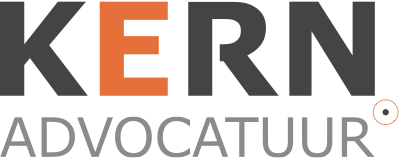The general meeting of shareholders (or GMS, in Dutch, AvA) is an important corporate body within the private limited liability company (in Dutch, BV). The Dutch civil code attributes certain essential competences to the general meeting of shareholders, such as the competence to amend the articles of association (bylaws) of the company or the right to appoint and dismiss directors of the company. The competence to manage the company (i.e. day-to-day business and strategy) is however reserved for the board of directors of the company. Different and conflicting opinions between the general meeting of shareholders and the board of directors regarding for instance the strategy and policy of the board of directors or the question whether or not dividends will be paid out or to place dividend into a reserve, are issues which are discussed and battled out in the general meeting of shareholders and in some cases could eventually lead to litigation. Especially when the company involved has minority shareholders and majority shareholders, it is essential to follow the rules on the GMS as laid down in the Dutch civil code. Non-compliance of such rules can lead to resolutions of the GMS being null and void or voidable. Below, please find some (non-exhaustive) tips and tricks applying to the general meeting of shareholders for the B.V. :
- Verify and make sure that the GMS has been convened correctly. For the B.V., the board of directors and the supervisory board are entitled to convene the GMS. Always review the articles of association first: these could have attributed the authority to convene the GMS to other corporate bodies;
- Unless the articles of association state otherwise, an individual director cannot convene a GMS. Convening the GMS is not an act of representation of the B.V.;
- Minority shareholders (alone or together holding at least 1/100 of the issued share capital) can request the board of directors and the supervisory board to convene a GMS. If they ignore or reject such request, the minority shareholders can be authorized by court to convene the GMS;
- Make sure the notice letter convening the GMS is addressed to the shareholders and others authorized to attend the GMS such as holders of depository receipts, pledgors or holders of the right of usufruct. The notice letter further should mention, brief and to the point, the subject matters to be discussed during the GMS;
- Make sure that the notice letter has actually been received by the shareholder(s) (moment of receipt is essential and not the moment of sending the letter). If the address as listed in the shareholdersregister is no longer correct because the shareholder has moved and the new address is known, then also send the notice letter to that new address;
- Directors and supervisory directors should also be notified of the GMS. They have a so-called advisory vote in the GMS;
- Take into account the notification term. As of 1 October 2012, this term is eight (8) days, meaning that in between the day of the notification of the GMS and the day of the GMS at least seven (7) days must have passed;
- What is the place of the GMS? This can be stipulated in the articles of association (can also be a place outside of the Netherlands if the articles so dictate) or otherwise the GMS will be held in the municipality of its registered address. A GMS held elsewhere, is only possible when all parties entitled to attend the GMS have approved to this and the directors and the supervisory directors have had the opportunity to give their advice before the actual resolutions in the GMS;
- Shareholders and others entitled to attend the GMS are always allowed assistance in the GMS by an attorney, civil law notary, candidate civil law notary, registered accountant or accountant administration consultant;
- Review the articles of association for the procedural order in the GMS. Who will be the chairperson during the GMS, who will act as (minutes) secretary, etc.
Especially in situations of conflict, but even when there is no (threatening) conflict within the company between shareholders and the board of directors or amongst shareholders themselves, it is key to be well-prepared for a general meeting of shareholders. To avoid shareholders resolutions being null and void or voidable it is crucial to adhere to the respective rules pertaining to convening the GMS and to the notification of the share- and stakeholders of the GMS.
Should you have any questions or need more information on the general meeting of shareholders or if you have other questions regarding Dutch corporate law, please contact Peter Keegstra.
